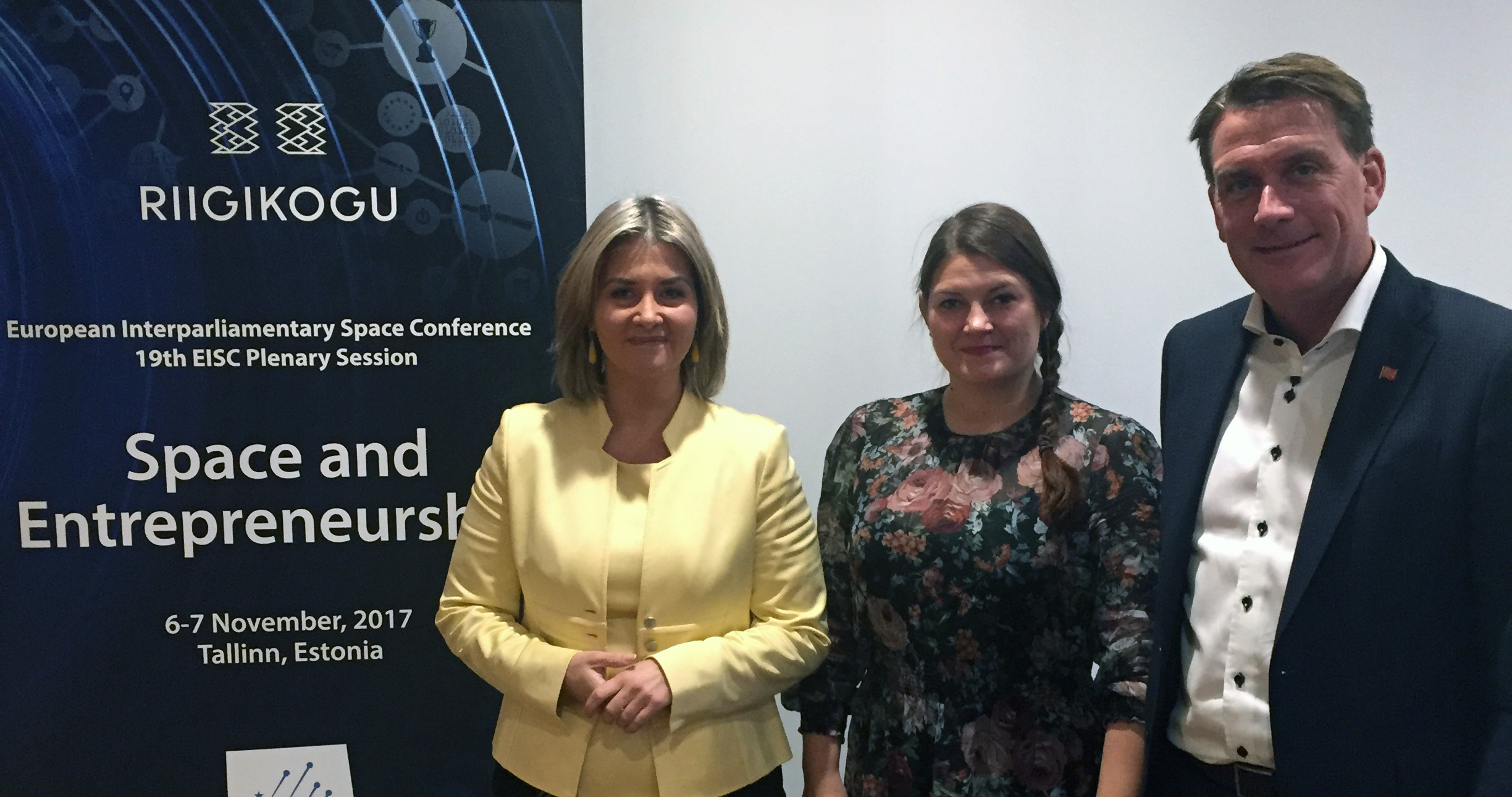
Estonian Member of Parliament Liisa Oviir with the Norwegian delegation, Cecilie Myrseth and Kårstein Eidem Løvaas. Photo: Storting.
Storting members at space conference in Estonia
The theme of the 19th European Interparliamentary Space Conference (EISC) in Tallinn on 6-7 November is how to create more jobs in space-related activities.
Representing the Storting at the conference are Cecilie Terese Myrseth (Labour Party) and Kårstein Eidem Løvaas (Conservative Party), both of whom sit on the Standing Committee on Business and Industry.
In comments presented at the start of the conference, Ms Myrseth highlighted Norway’s advantage as a country of the far north. Downlinking and processing satellite data in Svalbard and in Tromsø is a growth business, with KSAT at the forefront. In addition, geography and infrastructure make Andøya a good place for launching small satellites.
“As an ocean nation, Norway is completely dependent on satellite data to monitor the marine environment and manage fisheries. We must therefore work to make sure our interests are safeguarded in international cooperation on space affairs, for example by trying to improve satellite coverage north of 72 degrees latitude,” says Ms Myrseth.
Since the fall in oil prices, Norway has lost many jobs in the offshore petroleum industry and now seeks to increase investment in space-related businesses.
“Space operations are highly international in nature and are rapidly developing,” says Mr Løvaas. “That creates good opportunities for industrial development, technology transfer and innovation, based in part on the use of satellite data. Government and industry must follow developments closely.”
More information on Europe’s interparliamentary cooperation in space on the EISC website.
Last updated: 08.11.2017 14:10